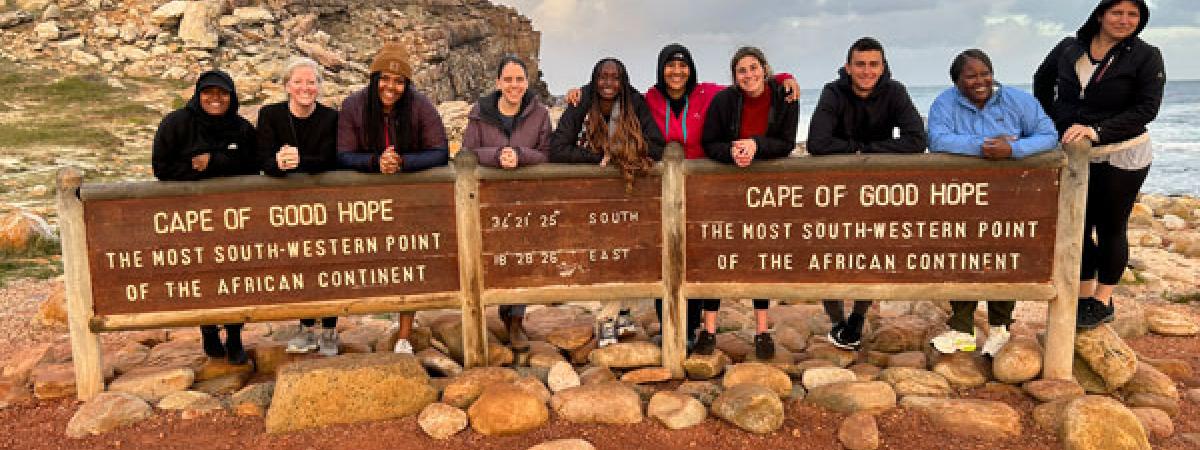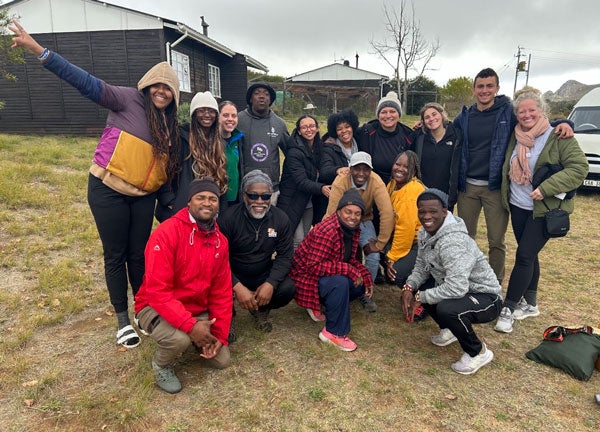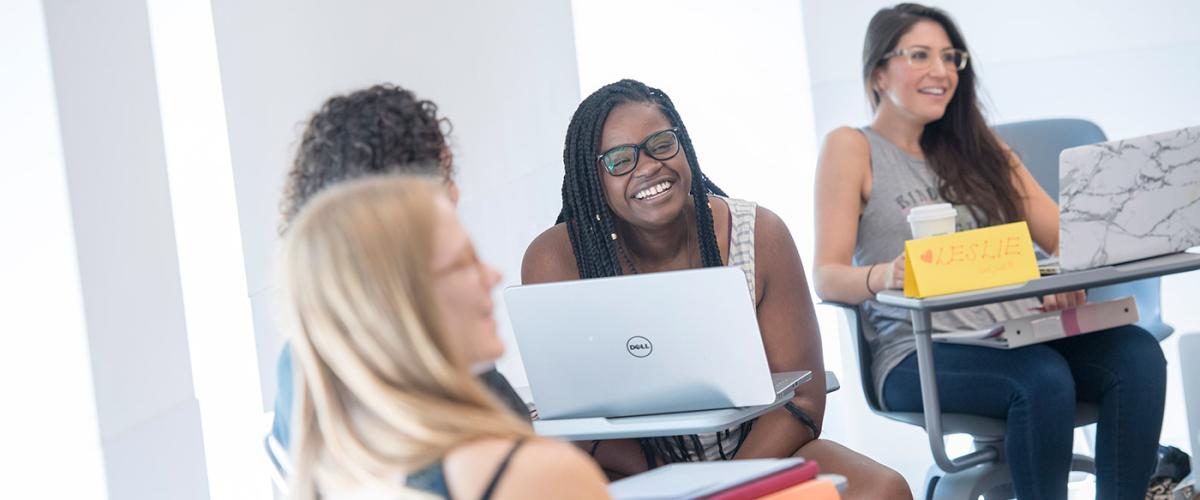International travel provides different views of social work
By Rachel Abbey McCafferty
Cape Town, South Africa, is a bustling, shining city—but just minutes away, homes are made from corrugated iron, there is a lack of running water and signs around the area warn of gang violence.
Toni Shoyinka and her fellow classmates—including Crystal Sledge and Allysia White—from the Jack, Joseph and Morton Mandel School of Applied Social Sciences participated in a study abroad program that is designed to deepen students’ understanding of social work in other countries. They learned they were seeing the long-lasting effects of apartheid, which continues to create inequality and economic disparities for the people of South Africa.
Before the travel abroad experience, Shoyinka recalled having “a very narrow view of social work” and what it could accomplish. During her visit, she job-shadowed at the Department of Social Development, which she compared to child protective services in the U.S. (though the South African department oversees cases for people of all ages). She learned about efforts to break down barriers and pull people out of poverty.
The experience showed Shoyinka how social work is practiced in other countries—a critical lesson for Sohyinka, who wants to work internationally.
Bringing the world to life
Study abroad programs get students “out of their comfort zone,” and help them see what day-to-day life is like for others, said David B. Miller, PhD, associate professor and director of international education programs at the Mandel School. It can show students the world in ways that books or social media can’t, he explained, giving students perspectives they might not see in the U.S.
“Our exposure is so limited,” Miller said.
To grow that exposure, the Mandel School offers short-term study abroad opportunities designed to build upon their on-campus education. Students travel to countries such as South Africa, Ecuador and Poland, where they visit and sometimes shadow employees at hospitals, prisons, social work agencies and universities. There, they gain perspective on the resources that may or may not be available in other countries. The programs typically last one to two weeks, with classes taking place in Cleveland before and after the trips to help deepen the students’ experiences.
Getting uncomfortable
Second-year master’s student White said the study abroad program in South Africa pushed her out of her “comfort zone” and encouraged her to speak up to learn more about apartheid and the efforts to address inequalities. It’s a topic she felt had never been taught in her schools in the U.S., though she observed that both countries share similar challenges with racism and inequality.
Sledge, a graduate student on the mental health track in the school’s weekend program, said the trip sparked a lot of self-reflection. It was an “affirming” experience, she said, one that gave her “confidence” and “clarity” in her work going forward.
They spent cold, uncomfortable nights in the mountains, she said—an experience that left her longing for home at the time but later served as a metaphor for her career.
“Being a social worker is very uncomfortable,” she explained. “Do we continue as the status quo? Who’s going to speak up and be the one to challenge what’s going on? Who’s going to be uncomfortable speaking about the elephant in the room?”
When Sledge, White and Shoyinka returned home to the U.S., they did so knowing how a career in social work could support social justice, healthcare and more. In short, the three aspiring social workers have new insights and global perspectives—and are better prepared for the challenges their social work careers will present.
Read more stories like this in the Winter 2023 edition of Action.






